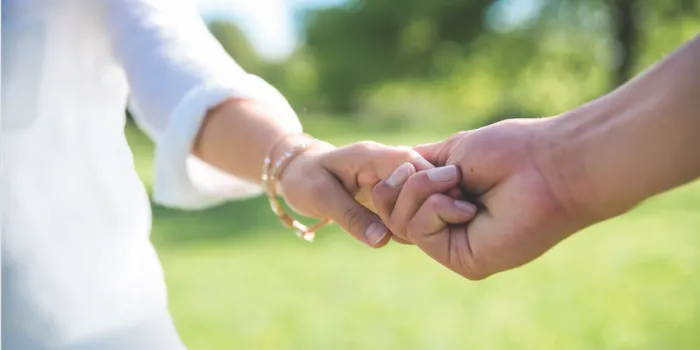Nursing student Ashley Long told the man who is now her boyfriend about her bleeding disorder on their first date. “Having a bleeding disorder is part of who I am, so why should I try to hide it?” says the native of Buffalo, New York, who has hemophilia A.
Long’s decision to be upfront had a welcome outcome: Her not-yet boyfriend, rather than recoiling, asked a lot of questions. “He wanted to know, how did it affect me? How did I deal with it day to day?”
Still, even the most well-meaning potential partner can react negatively to the news, a response typically triggered by a lack of knowledge about hemophilia, says Javey Dallas, LCSW, a social worker at the Oklahoma Center for Bleeding and Clotting Disorders, in Oklahoma City. “A large segment of our society doesn’t understand bleeding disorders,” says Dallas. “When there isn’t a lot of awareness, people fall back on stereotypes—that a person with a bleeding disorder will bleed to death from a paper cut, for example.”
When should I disclose my bleeding disorder?
The trick is to find the fine line between blurting out the news too early and waiting too long. But before you consider timing, says Dallas, consider how well you are dealing with your disorder: You can’t share information confidently if you don’t feel confident yourself.
For many young people, “being on your own and not under your parents’ care means you’re new to managing your condition,” Dallas says. If you have anxiety over your disorder or don’t feel fully in control of your own care, it’s harder to communicate effectively with, or reassure, a potential partner.
That makes sense to law school grad Patrick Cordova, who told his girlfriend about his hemophilia A when she asked about why he was having joint problems. Cordova, who lives in Chicago, credits his own relaxed attitude about his condition for his ability to share information in a way that makes the other person feel comfortable.
“I’ve always found it’s easiest for me to just let things come out naturally and explain as I go,” Cordova says. “I try to make others feel like their questions aren’t weird. If they think they’re asking weird questions, it just makes them nervous.”
How should I tell someone about my bleeding disorder?
Not every person with a bleeding disorder is as fortunate as Cordova in feeling relaxed and confident. Often, says Dallas, young people have significant anxiety over disclosure. If people ask Dallas for help facing that challenge, he asks them to list their anxieties and address them, possibly during role-playing:
- What are you afraid might happen?
- Are you worried the person will reject you?
- Are you afraid the relationship will change and the person will treat you differently?
- What are some solutions to those problems?
When you’re ready, stick to the basics at first. Don’t overload him or her with more information than is necessary.
At some point, you might consider having your significant other accompany you on a visit to your healthcare provider or meet with a social worker. “In the best-case scenario,” says Dallas, “your partner will have questions, and you will be ready with answers, with available educational resources.”
Learn More
• Get more information about dating and relationships when you have a bleeding disorder at Steps for Living

